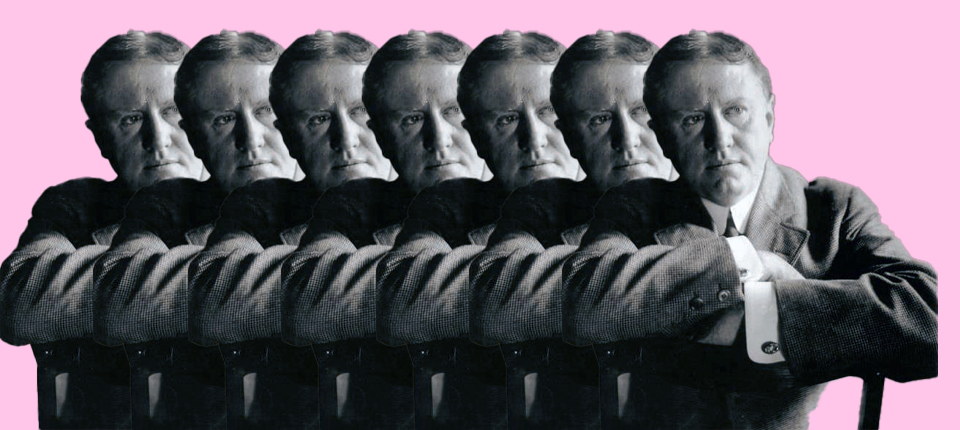The Best of the Literary Internet, Every Day

TODAY: In 1910, O. Henry dies.
- “The most effective weapon our colonizers wield over us is to make us believe, on some fundamental level, that we are not worthy of better.” Tareq Baconi on overcoming shared helplessness and working towards liberation in Palestine and beyond. | Lit Hub Politics
- “Sagan began recording his ideas while stoned, convinced that ‘the devastating insights achieved when high are real insights…’” Gabrielle Bellot in praise of Carl Sagan, iconic pothead. | Lit Hub
- Corey Mead on the slave labor that built the White House: “Despite how grueling and essential their labor was, virtually nothing is known about these hundreds of men beyond their first names.” | Lit Hub History
- Is a novel written quickly a better one? Peyton Marshall considers the virtues of slow writing. | Lit Hub Craft
- “Longevity is the only indicator of literature that really matters, and this book is built to last.” Nick Hornby remembers his friend, Melissa Bank, and her work. | Lit Hub Criticism
- On working in the 21st century: “You want me to be satisfied with peanuts while you’re eating and living fabulously, and we’re struggling down here to survive?” | Lit Hub Politics
- “We see our kids in terms of ourselves, since WE made them, and THEY don’t have Substack.” Janet Manley considers the ethics and complexities of writing about your own children. | Lit Hub Criticism
- “It was autumn and there were leaves everywhere. I decided to go back to London to get things.” Read from Gabriel Smith’s new novel, Brat. | Lit Hub Fiction
- “For if the modern cat knew its name and could ask for food when hungry, who was to say that, when your back was turned, it wasn’t gossiping about you?” On the history of talking cats in literature. | New York Review of Books
- Rachel Poser profiles Ibram X. Kendi, four years after 2020’s racial reckoning. | The New York Times Magazine
- “Her willingness to try on different disguises, different genres, different genders, and different voices is a mark of her courage and her curiosity.” Emily Wilson on Anne Carson. | The Nation
- “Harlan believed that books were a form of art, and that his house was also a piece of art.” What Harlan Ellison’s LA home can teach us about his work. | Los Angeles Times
- “There’s a deep luddite sentiment in literature generally.” Gabriel Smith talks autofiction, sample-based writing, and AI. | The Millions
- Are kids reading fewer books? According to a study out of the UK, yes. | The Guardian
Article continues below
